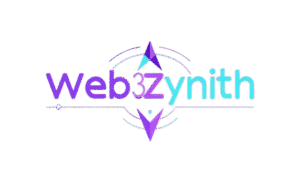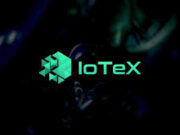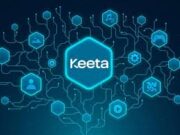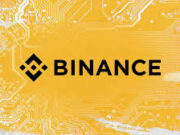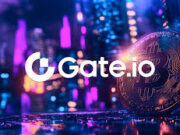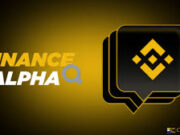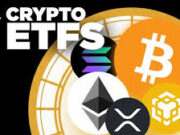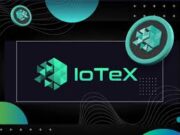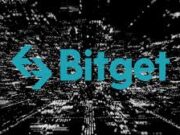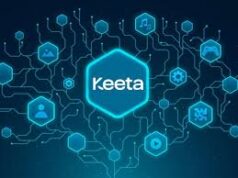Picture this: you’re signing up for a new online service. You’re asked for your name, email, phone number, and maybe even a scan of your ID. You hesitate, knowing that once you hit “submit,” that data is no longer yours. It’s stored on some distant server, vulnerable to hacks, leaks, or being sold to the highest bidder. Now, imagine an alternative—a world where you control your digital identity, deciding exactly what to share, with whom, and for how long. No tech giant or government agency holds your data hostage. This isn’t sci-fi; it’s the promise of decentralized identity, a lesser-known but revolutionary application of blockchain technology that could dismantle data monopolies and put power back in your hands.
I’ve been diving deep into blockchain lately, not just for its crypto hype but for its potential to reshape how we interact with the digital world. Decentralized identity (DI) stood out as a game-changer, and I’m excited to share why it’s a topic worth caring about. Let’s unpack what it is, how it works, why it matters, and what it could mean for the future of privacy and autonomy.
What Is Decentralized Identity?
At its core, decentralized identity is about giving individuals control over their personal data using blockchain technology. Unlike traditional systems where your data lives in centralized databases (think Google, Facebook, or even your bank), DI uses blockchain’s decentralized, tamper-proof ledger to store and verify identity information. You hold your data in a digital wallet, secured by cryptography, and share only what’s necessary through verifiable credentials.
Here’s a simple analogy: instead of handing over your entire wallet to prove you’re over 21 at a bar, you show just your ID card. With DI, you can share a single piece of verified information—like your age or citizenship—without exposing your entire identity. The blockchain ensures the credential is legit, and no third party gets to snoop on the exchange.
The concept hinges on three pillars: self-sovereign identity (SSI), verifiable credentials, and decentralized identifiers (DIDs). SSI means you own and manage your identity without relying on a central authority. Verifiable credentials are digital proofs (like a driver’s license or diploma) issued by trusted entities and stored in your wallet. DIDs are unique, cryptographically secure identifiers tied to you but not to a central registry, ensuring privacy.
How Does It Work?
Let’s break it down with a real-world example. Say you’re applying for a job, and the employer needs to verify your degree. In today’s world, they might contact your university or rely on a third-party background check service, which is slow and often invasive. With DI, here’s how it goes:
- Your University Issues a Verifiable Credential: When you graduate, your university issues a digital credential (your degree) signed with their cryptographic key. This credential is stored in your blockchain-based digital wallet.
- You Share Only What’s Needed: When the employer asks for proof of your degree, you share just that credential via a secure, encrypted connection. You don’t need to reveal your transcript, student ID, or anything else.
- The Employer Verifies It Instantly: The employer checks the credential against the blockchain to confirm it’s valid and hasn’t been tampered with. The university’s public key on the blockchain ensures authenticity.
- No Middleman, No Data Leak: Unlike traditional systems, no central database stores your info, reducing the risk of hacks. The employer doesn’t get a copy of your data unless you explicitly allow it.
This process relies on blockchain’s core strengths: immutability (data can’t be altered), decentralization (no single point of failure), and cryptographic security. Platforms like Ethereum Name Service (ENS) and projects such as uPort and Sovrin are already building these systems, making DI a reality.
Why It Matters: Breaking Data Monopolies
Now, let’s get to the juicy part—why decentralized identity is a big deal. Data monopolies, like those held by Big Tech, thrive on controlling your personal information. Every time you log in with Google or Facebook, you’re feeding their data empires. They track your behavior, monetize your data, and expose you to risks like the 2018 Cambridge Analytica scandal, where millions of Facebook users’ data was misused.
DI flips this model on its head. By giving you control over your data, it dismantles the power of centralized gatekeepers. Here’s why this matters:
- Privacy First: With DI, you share only what’s necessary. Need to prove you’re over 18? Share a verified age credential without revealing your birth date or address. This minimizes data exposure and reduces the risk of identity theft.
- Security Boost: Centralized databases are hacker magnets. In 2021 alone, over 2.6 billion personal records were exposed globally, according to the Identity Theft Resource Center. Blockchain’s decentralized nature spreads data across countless nodes, making it nearly impossible to hack.
- User Empowerment: DI puts you in the driver’s seat. You decide who gets access to your data and can revoke it at any time. Imagine canceling a service’s access to your info as easily as unfollowing someone on social media.
- Efficiency and Trust: DI streamlines verification processes. Businesses save time and money by instantly verifying credentials without intermediaries. Users gain trust knowing their data isn’t being mishandled.
Real-World Applications
Decentralized identity isn’t just a concept—it’s already being tested and implemented. Here are a few examples that got me excited:
- Healthcare: Imagine storing your medical records in a digital wallet, sharing only relevant details with doctors or insurers. Projects like MediBloc are using blockchain to secure health data, giving patients control while ensuring interoperability across providers.
- Travel and Immigration: Airports could use DI to verify passports or visas instantly, reducing lines and fraud. The World Economic Forum’s Known Traveller Digital Identity project is exploring this, aiming to make travel seamless and secure.
- Education and Employment: Platforms like Blockcerts allow institutions to issue digital diplomas that graduates control and share with employers. No more waiting weeks for transcript verification.
- Financial Inclusion: In developing regions, millions lack formal IDs, locking them out of banking and services. DI projects like ID2020 are creating blockchain-based identities to give these individuals access to financial systems and social services.
Challenges to Overcome
I’d be remiss not to mention the hurdles. No tech is perfect, and DI has its share of challenges:
- Adoption: For DI to work, governments, businesses, and institutions must adopt it. This requires global standards and cooperation, which is no small feat. The W3C is working on DID standards, but we’re not there yet.
- User Experience: Managing a digital wallet sounds cool, but it can be complex for non-techies. If your grandma can’t use it, it won’t scale. Projects are working on user-friendly interfaces, but there’s work to do.
- Regulation: Governments love control, and DI’s decentralized nature could raise eyebrows. Balancing privacy with compliance (like KYC/AML laws) is tricky but solvable.
- Scalability: Blockchain networks like Ethereum can be slow and expensive. Layer-2 solutions and newer blockchains like Polkadot are addressing this, but scalability remains a concern.
Despite these challenges, the momentum is strong. Companies like Microsoft and IBM are investing in DI, and pilot projects are popping up worldwide. The tech is maturing, and the will to break free from data monopolies is growing.
The Future of Decentralized Identity
So, where’s this all headed? I see DI as a cornerstone of a freer, more private internet—what some call Web3. In a decade, we could be logging into services with DIDs instead of Google accounts, sharing credentials seamlessly while keeping our data secure. Data monopolies could shrink as users reclaim control, forcing Big Tech to compete on value rather than data hoarding.This shift won’t happen overnight, but the pieces are falling into place. Blockchain’s ability to empower individuals is more than crypto hype—it’s a paradigm shift. Whether you’re a privacy advocate, a tech enthusiast, or just tired of data breaches, decentralized identity is worth watching.
Final ThoughtsDecentralized identity isn’t just a cool blockchain trick; it’s a movement toward a world where you own your digital self. It’s about breaking free from the grip of data monopolies and reclaiming autonomy in an increasingly connected world. As I dug into this topic, I got genuinely excited about its potential to reshape privacy, security, and trust online. If you’re looking for a way to spark your readers’ curiosity, share this vision of a future where we all hold the keys to our digital lives.
Sources:
- Identity Theft Resource Center, “2021 Annual Data Breach Report,” https://www.idtheftcenter.org.
- World Wide Web Consortium (W3C), “Decentralized Identifiers (DIDs) v1.0,” https://www.w3.org/TR/did-core/.
- World Economic Forum, “Known Traveller Digital Identity,” https://www.weforum.org/projects/known-traveller-digital-identity.
- MediBloc, “Blockchain for Healthcare,” https://medibloc.com.
- ID2020, “Digital Identity for All,” https://id2020.org.
